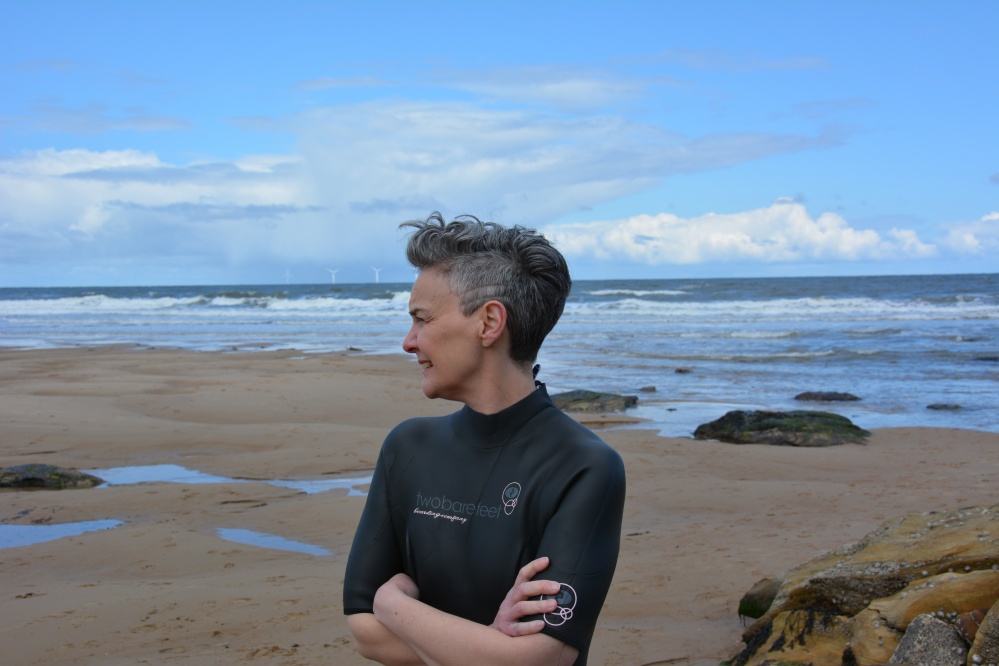Elizabeth Joseph on the Unspoken Perils of the Menopause

Elizabeth Joseph takes a look at the unspoken perils of the menopause as she stumbles into this major change-of-life stage with neither warning nor explanation from anyone
Typically, women reach their menopause at the age of 51. You have reached menopause when you have not had a period for 12 consecutive months. Perimenopause is the build up to menopause and typically lasts four years.
And yet of course there is nothing typical about perimenopause, as each woman will experience this time differently – for some the symptoms will be severe and debilitating, others will have a few hot flushes and breeze through. But let’s face it, we all experienced puberty differently, and those of us who experienced pregnancy and childbirth all have very different tales to tell.
And yet we tell those tales, don’t we?
When we went through puberty there were books to read, mums, grans, aunts, older sisters, friends and healthcare professionals to ask for advice. If you went through pregnancy there were books to read, healthcare professionals, mums, grans, aunts, sisters and friends to ask for advice.
And yet, I stumbled into this major life stage with neither warning nor explanation from a single woman. Nor was any doctor able to put my symptoms together for me.
Imagine doctors not being able to recognise the symptoms of puberty? Imagine no woman talking to you about pregnancy? Imagine going through such major life stages surrounded by a deafening wall of silence? You don’t have to imagine, do you, because that is what is happening to you right now.
When my periods started getting closer together and heavier, with almost constant spotting, I finally realised what was going on. Many women at this point turn to HRT. For many of us though, this is not an option, and we look for a more natural approach.
For the last three years, I have been trying all manner of natural approaches that are available out there, and quite a few approaches that are most certainly ‘out there’ – from sacral cranial osteopathy to flatulence filtering underwear to mindfulness to womb massage to roller-skating. To name but a few.
I want to share them with you, so you can share them.
Let’s break down that wall together.
This month, we are looking at cold-water therapy. Stop shaking your head, and read on! I felt the same, but it is an absolute game changer.
There has been a lot in the press recently about the benefits of cold-water swimming for mental health and specifically the peri/menopause. There are on-going studies but it is believed that it:
• Boosts your immune system
• Improves your circulation
• Reduces stress
• Reduces levels of inflammation
• Gives you a natural high
This truly was the last thing I ever expected I would try. I do not put my face in the water in a pool. I rarely swim in a pool. I don’t like being wet or cold. And I am properly scared if I can’t see my feet.
It is scary but it is also exhilarating. To be honest, I don’t stay in the sea that long. I’ve been told the number of degrees is the number of minutes you should stay in – and the North Sea is cold. I am what is known as a ‘Tea Bagger’ – I plonk myself in, bob around for a bit, and then I get out.
‘Gives you a natural high’ does not come close to how you feel for the rest of the day. If I could I would move to the seaside and dunk myself in every morning. I have never experienced anything like it. I float through the rest of the day. No anxiety, no mood swings, no itchy skin.
Much as we would all like a cottage by the sea, not all of us will fit along our beautiful coastline. The next best thing – cold showers. You’re shaking your head again!
Turning the water to cold, slowly, at the end of your shower for 30 seconds to two minutes has a positive impact on feelings of stress and anxiety.
It’s all to do with your autonomic nervous system. The autonomic system is made up of the sympathetic nervous system – responsible for your fight or flight response and your parasympathetic nervous system – responsible for calming and relaxing body and mind. The idea is that by ‘stressing’ your body you will, over time, be able to activate your parasympathetic nervous system to calm any feelings of worry and anxiety.
I have been ‘enjoying’ this natural approach for eight months now and have noticed a huge difference. I no longer wake with a feeling of dread, I generally feel more positive and invigorated during the day, I sleep better at night, my skin no longer itches, my hot flushes, night sweats and mood swings have all diminished.
Don’t believe me? Try it. It works. But it really takes will power to do it every day. Give it a go for a month and you will see a difference. I would like to leave you on a positive note. If you are struggling now, it does get better; you will get through this, especially if you throw yourself into these natural approaches. But either which way, you will come out the other side of this bolder and brave than you entered it.
It is the fluctuating levels of oestrogen that are causing the majority of your symptoms. As oestrogen eventually falls away you will find that you care a lot less what other people think of you, you will start to embrace putting yourself first for a change and you will discover a new found confidence. You are entering the best third of your life and you are going to be magnificent.
Next month we will be looking at meditation and exercise – including face yoga. No, really…
You can follow @elizabethjosephnavigating on Instagram.







